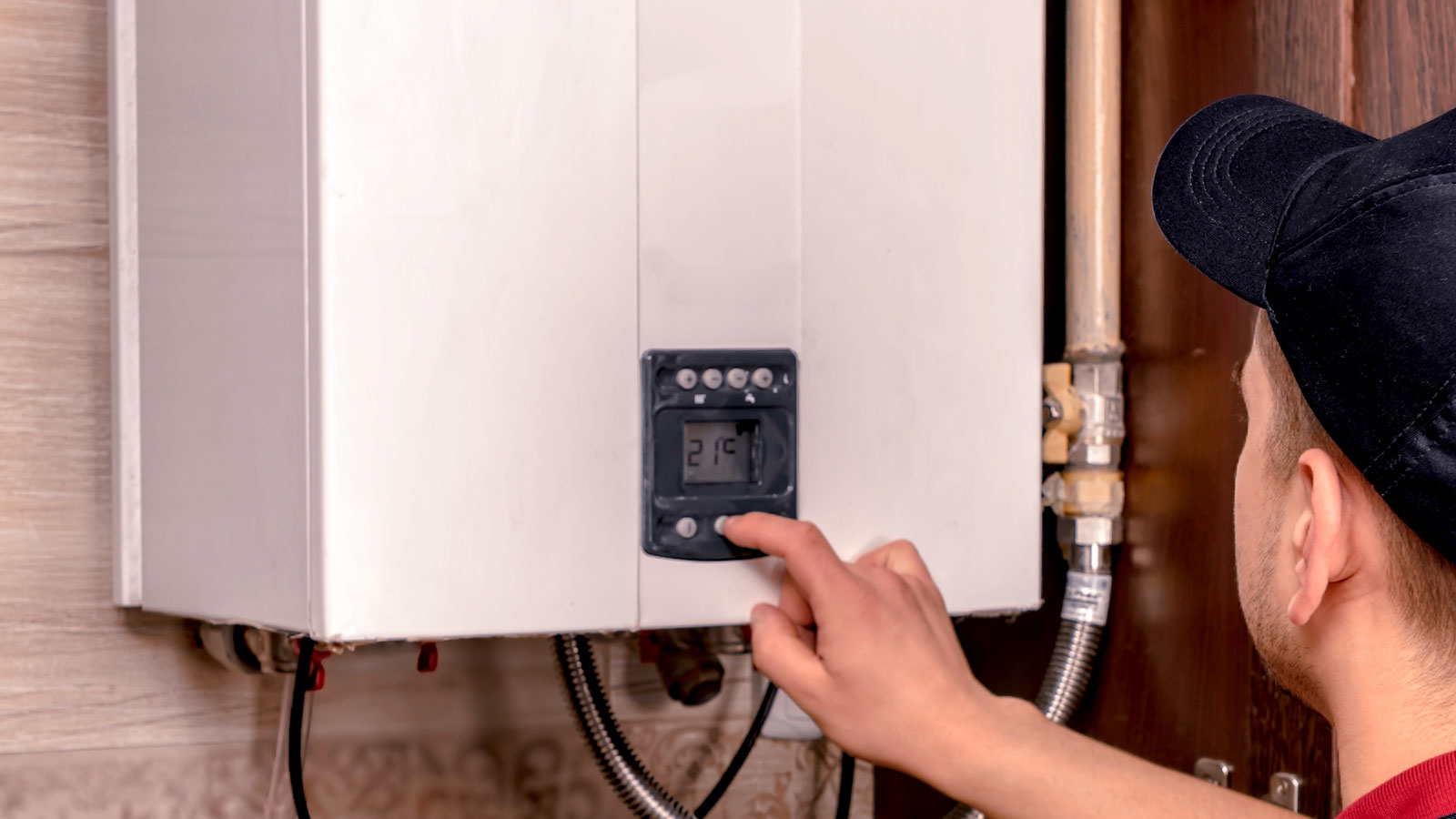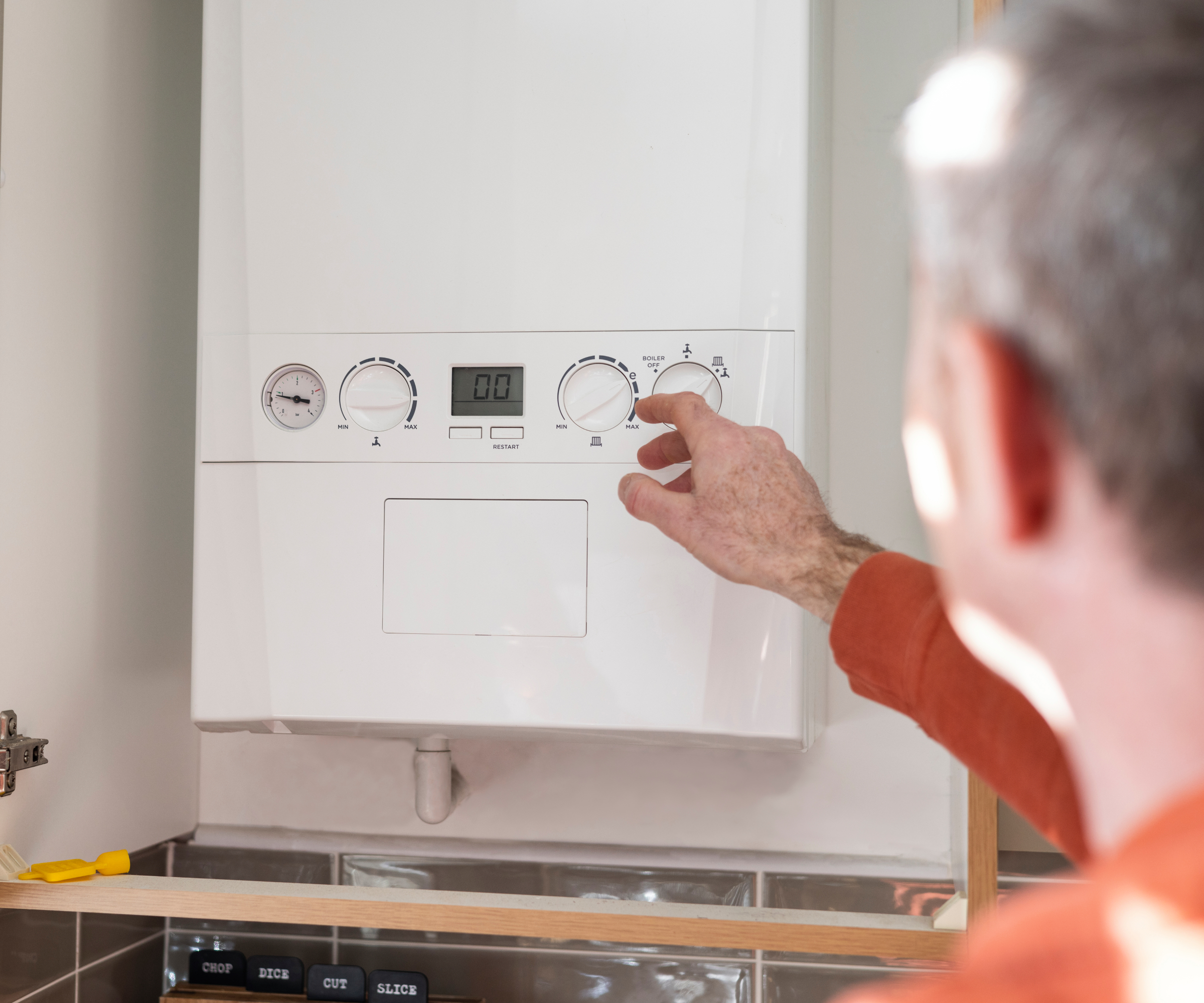How to optimise your boiler flow temperature to save on energy bills
Turn down your boiler flow temperature in order to turn up the savings this Energy Saving Week

Did you know your boiler could be the secret weapon to cutting down on energy bills?
With Energy Saving Week underway in the UK, now is the perfect time to take a closer look at your boiler’s flow temperature as this simple energy saving tip could save you money and make your home more energy-efficient without sacrificing comfort.
In this guide, we’ll explain what boiler flow temperature is, why it matters, and how you can adjust it yourself to keep your energy bills in check. Whether your home is old or new, there’s an ideal setting for everyone –let’s dive in!
What is boiler flow temperature?
Boiler flow temperature refers to the temperature your boiler heats water to before sending it to your radiators.
John Small, home energy expert and owner of Ty Eco, explains: “Boilers are typically set to a flow temperature of 75°C to 80°C, but this could be making your system less efficient and driving up your energy bills unnecessarily.”
When your boiler’s flow temperature is too high, it works harder than it needs to, wasting energy and money. Lowering the flow temperature can make your boiler more efficient, especially during milder weather, whilst keeping your house warm.
John Small is the owner of Eco House Builders Ty Eco. Ty Eco are members of the passive house UK movement helping to create homes that meet the eco standard of PassivHaus accreditation.
What is the ideal boiler flow temperature?
Finding the right boiler flow temperature depends on your home’s insulation and the time of year.
John Small recommends a tailored approach: “For older homes, aim for around 55°C in warmer months and closer to 60°C in the winter. For modern, well-insulated homes, you can go as low as 45°C during spring and summer, increasing to between 50°C and 55°C in winter.”
Keep in mind that a lower flow temperature will mean your home takes slightly longer to heat up. However, the efficiency gains are well worth the wait, provided your home is well-insulated.
Mike Storey, insulation expert at UK Flat Roofing, adds: “Without proper insulation, any adjustments to boiler flow temperature will have limited impact, as heat will still escape through the roof, walls, floors, and windows. Insulation is often the most effective way to reduce energy costs and should be the first step before fine-tuning heating settings.”

With over a decade of experience at the helm of UK Flat Roofing, Mike Storey has been dedicated to providing expert roofing and insulation solutions since 2014. As a specialist in energy-efficient home improvements, Mike combines technical expertise with a passion for helping homeowners reduce their energy bills.
How can homeowners avoid bill increases due to boiler flow?

Lowering your boiler flow temperature is a straightforward way to reduce your energy usage. John Small explains, “It’s estimated that turning down the flow temperature could save the average household around £65 a year.”
To adjust the temperature on your boiler you need to locate the temperature controls on the front of your boiler and use the plus and minus buttons or the dial to lower the heating flow temperature.
However, there are two key points to consider:
- Only for combi boilers: You should only adjust the flow temperature if you own a combi boiler. For boilers with a hot water tank, lowering the temperature too much can allow bacteria to grow.
- Don’t guess: If you’re unsure about the controls consult your boiler’s manual or a qualified engineer.
How to lower a boiler’s flow temperature yourself
To safely lower your boiler flow temperature, follow these expert tips:
- Check your boiler type. If you have a combi boiler, locate the temperature controls on the front.
- Refer to trusted guides like Nesta’s Money Saving Boiler Challenge or your boiler’s manual.
- Adjust the flow temperature gradually and monitor your home’s comfort.
- Don’t hesitate to call an engineer or plumber for help if you’re unsure.
John Small emphasises: “Lowering your flow temperature is a simple, effective way to cut energy costs, but always ensure your settings are safe and suitable for your system.”
By combining these boiler adjustments with effective home insulation, you can maximise your energy savings and combat energy price rises.
As Mike Storey reminds us: “Insulation is the foundation of energy efficiency. Without it, any savings from lowering boiler flow temperature will be limited.”
Optimising your boiler flow temperature could be your first step towards lower energy bills and a greener home. What’s stopping you from making the change today?
Get the Homebuilding & Renovating Newsletter
Bring your dream home to life with expert advice, how to guides and design inspiration. Sign up for our newsletter and get two free tickets to a Homebuilding & Renovating Show near you.

News Editor Joseph has previously written for Today’s Media and Chambers & Partners, focusing on news for conveyancers and industry professionals. Joseph has just started his own self build project, building his own home on his family’s farm with planning permission for a timber frame, three-bedroom house in a one-acre field. The foundation work has already begun and he hopes to have the home built in the next year. Prior to this he renovated his family's home as well as doing several DIY projects, including installing a shower, building sheds, and livestock fences and shelters for the farm’s animals. Outside of homebuilding, Joseph loves rugby and has written for Rugby World, the world’s largest rugby magazine.
